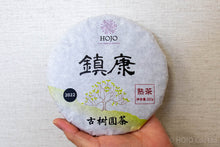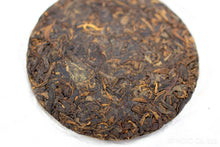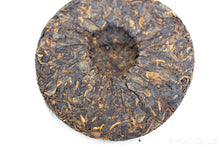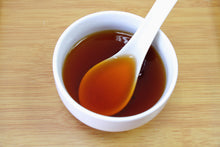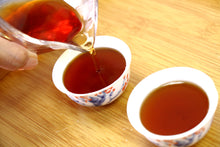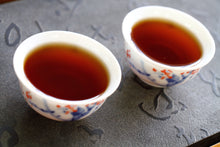
Zhenkang Ancient Tree Ripe Pu-erh: A Daily Tea from a Remote Region
This ripe Pu-erh tea from Zhenkang was created with everyday enjoyment in mind, offering quality leaves at an accessible price. To achieve this, we source tea from remote, less-developed areas deep in the mountains.
From the Borderlands of Yunnan and Myanmar
This tea is produced in Zhenkang County, part of Lincang Prefecture in Yunnan Province. Located in the westernmost part of Lincang, Zhenkang shares a border with Myanmar.
The county seat is in Nansan Town, which also serves as a key hub for cross-border trade. Just behind Nansan in economic activity is Fengwei Town, located in the northeastern part of the county.
A High-Altitude Tea Region Rich in Ancient Trees
Fengwei is a mountainous area with high elevations, well known for tea cultivation—particularly for its abundance of ancient tea trees (gushu). The region is home to various ethnic minority communities, including the Lahu and Wa peoples, where traditional ways of life and culture are still preserved.
This tea reflects the unique terroir and cultural depth of its origins—bringing the richness of Yunnan’s borderlands into your daily cup.



Seeking Quality Ripe Pu-erh from Remote Regions
To offer a high-quality ripe Pu-erh at an accessible price, we prioritized sourcing from more remote, less-developed areas. Even within Lincang, regions with well-developed infrastructure and easy access from urban centers tend to attract more visitors and traders, which pushes tea prices up.
In contrast, Fengwei Town—where this tea originates—is located roughly eight hours by car from the nearest airport, and the tea is sourced from even deeper within the surrounding mountain villages. This level of remoteness allows us to access ancient tree teas of similar quality to more famous regions, but at a more affordable cost.



A Curious Encounter with Local Traditions
During our visit to the ethnic minority villages in the region, we were not offered tea, but rather a mysterious homemade drink—a potent local spirit infused with wild mountain herbs, distilled and brewed by the villagers themselves. It was a unique glimpse into the local culture, where tea is not always the primary beverage.
Naturally Grown Tea from Ancient Trees
Zhenkang Ancient Tree Ripe Pu-erh 2023 is made from tea leaves harvested in Fengwei Town, located at an elevation of 2,000 meters. The tea trees used are over 100 years old and have been cultivated without the use of fertilizers or pesticides. This natural approach imparts a remarkable clarity and purity to the tea, with a long, lingering finish.
While the tea is processed in a small, remote mountain factory—which may give it a slightly rustic character—it is precisely this handmade charm that allows the tea to develop complexity over time. With aging, its aroma becomes richer, revealing sweet notes reminiscent of dried fruits, along with a gentle, mellow flavor that grows more refined with each passing year.


How to Store Your Tea
We recommend storing your tea at room temperature. Tea is highly sensitive to moisture, and even minimal exposure to humidity can cause rapid deterioration. Tea leaves can unintentionally absorb moisture under the following conditions, so please take care:
-
Placing the tea near steam when brewing
-
Using a spoon or scoop with residual moisture
-
Opening the package on a humid day or in a damp environment
-
Opening the package immediately after removing it from the refrigerator, causing condensation
-
Allowing the tea to return to room temperature after refrigeration, but failing to seal it completely, also resulting in condensation
Among these, points 4 and 5 are the most common causes of tea spoilage. When tea is stored in the refrigerator, the inside of the bag becomes cold, and even with proper sealing (e.g., tape), external air often seeps in, causing condensation. Once condensation occurs, the tea's aroma can change noticeably within just 2 to 3 days.
To prevent moisture damage, always store tea at room temperature, in a well-dried environment, and ensure the packaging is tightly sealed. Once opened, it's ideal to consume the tea within a few months.
For unopened, vacuum-sealed packages, long-term storage of over a year is possible. If you wish to allow the tea to naturally age, store it at room temperature unopened. If you prefer to preserve its original freshness, refrigeration is also possible—just be sure to let it return to room temperature for at least 24 hours before opening to prevent condensation.






